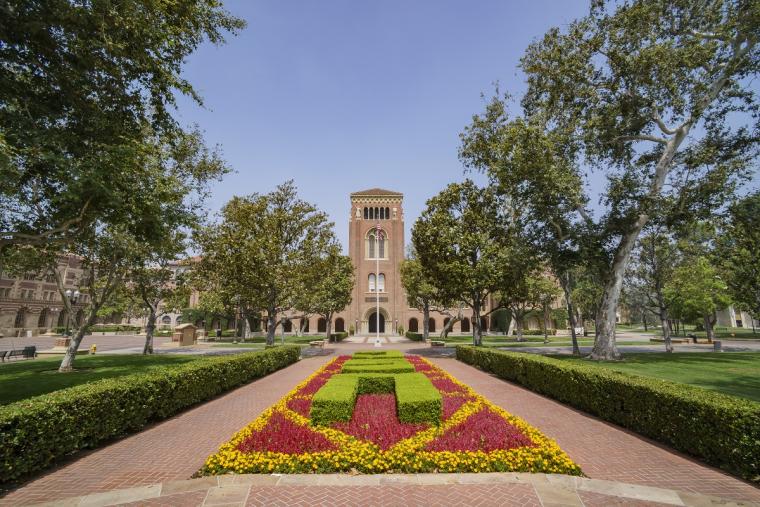

Vavic, the only coach who chose to stand trial rather than take a guilty plea, was found guilty by a Boston jury, who noted he had taken thousands of dollars in bribes in exchange for designating non-athlete high school applicants as recruits so they would be favored in the college admissions process. According to the New York Times, he faces a sentence of up to 20 years in prison and a fine, but the longest sentence given as part of the scandal has been 15 months.
The odd thing, however, was this: Vavic was already well known. He had coached the men’s and women’s water polo teams to 16 national championships and some of his students had gone on to be Olympians.
What the what? But, as it turns out, Vavic was not alone. The scandal was perpetrated across a number of sports – rowing, tennis, beach volleyball, sailing, soccer, water polo – even basketball – and involved coaches taking kickbacks from Florida-based mastermind William “Rick” Singer to designate selected students as potential team members – and then exploit connections with morally flexible coaches to have them admitted to top colleges, despite the fact that they did not have any involvement in (or even interest in) those sports. He also paid admissions staff and testing officials; admissions staff members were paid to recommend students, and testing officials often took tests or students, or corrected them, inflating their scores.
Parents paid hundreds of thousands of dollars to Singer in exchange for his machinations – and since schools (to their embarrassment) did not follow up, students were admitted and allowed to ignore the sport in which they were admitted. The scheme took place at Division I schools, including the Ivy League. (A summary of how the scheme worked can be found at this link, for those who need a backgrounder).
Singer claimed he had discovered “a side door” to the college admissions process and collected money from wealthy parents, then disbursed a percentage to coaches, as well as admissions and testing officials – while keeping an enormous amount for himself in his “Key Foundation” accounts. (He cooperated with authorities in exchange for a plea deal). He is believed to have provided illegal assitance to more than 750 families, although only a fraction of those were charged.
Since the news broke in March of 2019, dozens of coaches, as well as the parents of involved students, have been indicted, charged and found guilty. (Parents even included wealthy CEOs and celebrities like actresses Felicity Huffman and Lori Loughlin and her husband, fashion designer Mossimo Giannulli).
And with Vavic’s case all over except for the sentencing, that’s a wrap.
According to Rachael S. Rollins, the U.S. attorney for the district of Massachusetts (where most courses were tried), the verdict resolved all the cases connected to Singer, with 54 convictions, one deferred prosecution agreement and one person pardoned by the Trump administration. (Some parents are trying to avoid jail time through a legal loophole).
But as a result, has anything in the college admissions system changed – and has anything been learned? Here are the salient points and the takeaways:
Did students know, or actively try to pass themselves off as athletes? None of the students involved in the scandal were legally charged – though it is entirely possible that many, like Loughlin’s daughter, Olivia Jade, actively participated in the scandal. However, few came out unscathed. Since the time the scandal came to light, many of those students have been subjected to in-person and online harassment and to bans from the colleges. Some were expelled or simply told their acceptance was no longer valid. (A few prevailed upon the colleges and stayed in on the basis of their grades, test scores and behavior).
Students who were still in high school but who had been accepted to colleges through illegal means were banned from proms, shunned by students and teachers and generally ridiculed. Their acceptances were revoked by the colleges in question and if they had been awarded scholarships, those were revoked as well.
Many students who had already begun college simply dropped out after facing ridicule from peers. Some expressed bitter animosity toward their parents for not allowing them to sink or swim on their own. (Some of the students may not have been actively interested in college in the first place; Olivia Jade seems to have been indifferent to it, going so far as to state on social media that she was only enrolled for the parties and football games. It is likely that in years going forward, book and/or magazine deals will be offered to other former students, and more will be revealed).
Have colleges added safeguards to the admissions process? TIME Magazine notes, “Yes, to a degree. While it’s harder to pass as a phony water polo or soccer player at well-resourced institutions like USC and Yale, there’s still potential to exploit the system. What’s more, the scandal hasn’t really eradicated fundamental inequalities when it comes to college admissions and sports. At elite colleges across the country, those precious admissions spots for athletes are still more likely to go to students from wealthy families.”
Some measures are in effect: Schools across the board – even those in DII and DIII institutions that Singer absolutely was not targeting (sorry) – say they have instituted various safeguards, oversights and redundancies to protect the integrity of their programs. Unfortunately, there are no concrete steps for verification; it’s not like a drug test students can pass or fail, and in terms of athletic abilities, a student’s SAT scores or grades may be lower on the list of considerations, creating even less of a measurable instrument with which to judge potential freshmen.
However, justice official are hopeful (though not entirely optimistic) that these days, when coaches present schools with the name of a potential recruit, extra fact-finding will be performed at the admissions level. In the Varsity Blues case, in some cases, students’ faces were photoshopped into team images, or the teens in question posed on athletic equipment used by student athletes. Whether college officials will actually take the extra step and contact high school coaches to find out whether the student in question is actually participating – well, that’s an open question.
Have policies changed? That is a question only individual colleges can answer. But in short – sometimes. The Washington Post notes, “Suggestions included setting aside more spots for low-income, first-generation and nontraditional students, ending legacy admissions (something Johns Hopkins University just did) or following the lead of the University of Texas, which guarantees admission to any public university in Texas to the state’s top-ranked students. There were calls for condensing college degrees from four years to three to save students time and money, creating a lottery system for admissions, and adding more federal Pell grants and state support for higher education, though little optimism the latter two proposals would happen.”
What about the most-wanted colleges? Calls were also made to reform lists of so-called “desirable colleges” in the U.S. but it is doubtful that will happen. WaPo notes, “Ideas also emerged for overhauling the way colleges are ranked by publications such as U.S. News & World Report — giving colleges props for fostering access, diversity and affordability, for example, instead of rewarding them for admitting students with high test scores and good grades, or for rejecting large numbers of recruited applicants so they can boast about selectivity.”
But since those lists weren’t indicted or sentenced, it’s unlikely change will occur there.
Is college still for the rich and privileged?That’s a great big yes, says WaPo: “Less than one-half of 1 percent of children from the poorest fifth of American families attend elite colleges and universities, according to one analysis.” It was obvious before the Varsity Blues scandal and it’s still obvious now.
Can technology help? It’s a very real possibility. Many event owners are encouraging students to use platforms like Next College Student Athlete and Captain U in order to connect with coaches at the schools they want to attend. Additionally, there are plenty of showcase events for student athletes and combines – even in bass fishing – where students can connect with institutions they’d like to attend. Unfortunately, “fly-by-night” recruitment platforms are tarnishing the image.
What can event owners do? Some have already aligned themselves with well-established technology platforms (for example, USA Cheer and STUNT have Captain U as their official platform, and US Youth Soccer puts forward Next College Student Athlete as theirs). Many event owners are producing combines and showcases, inviting college coaches to attend for a “first look” at the athletes of tomorrow. Live streaming (and making streams available free of charge) can also be an excellent way of breaking down the barriers between colleges and potential student athletes.
As the scandal nears what seems to be its end, it is for event owners, destinations and vendors to encourage connections between colleges and student athletes through honest means.
Has anything really changed? Maybe not. With more competition for athletic scholarships – and fewer available than ever – expect parents to be eager to use every available resource to make contacts at the college level – and to be grateful to the event owners who can help them make any connection toward their goal, specifically connections proven to be legitimate. With the Varsity Blues case as a warning sign, recruitment will be under increased scrutiny – but it's doubtful parents in pursuit of an athletic scholarship will be any more cautious.

